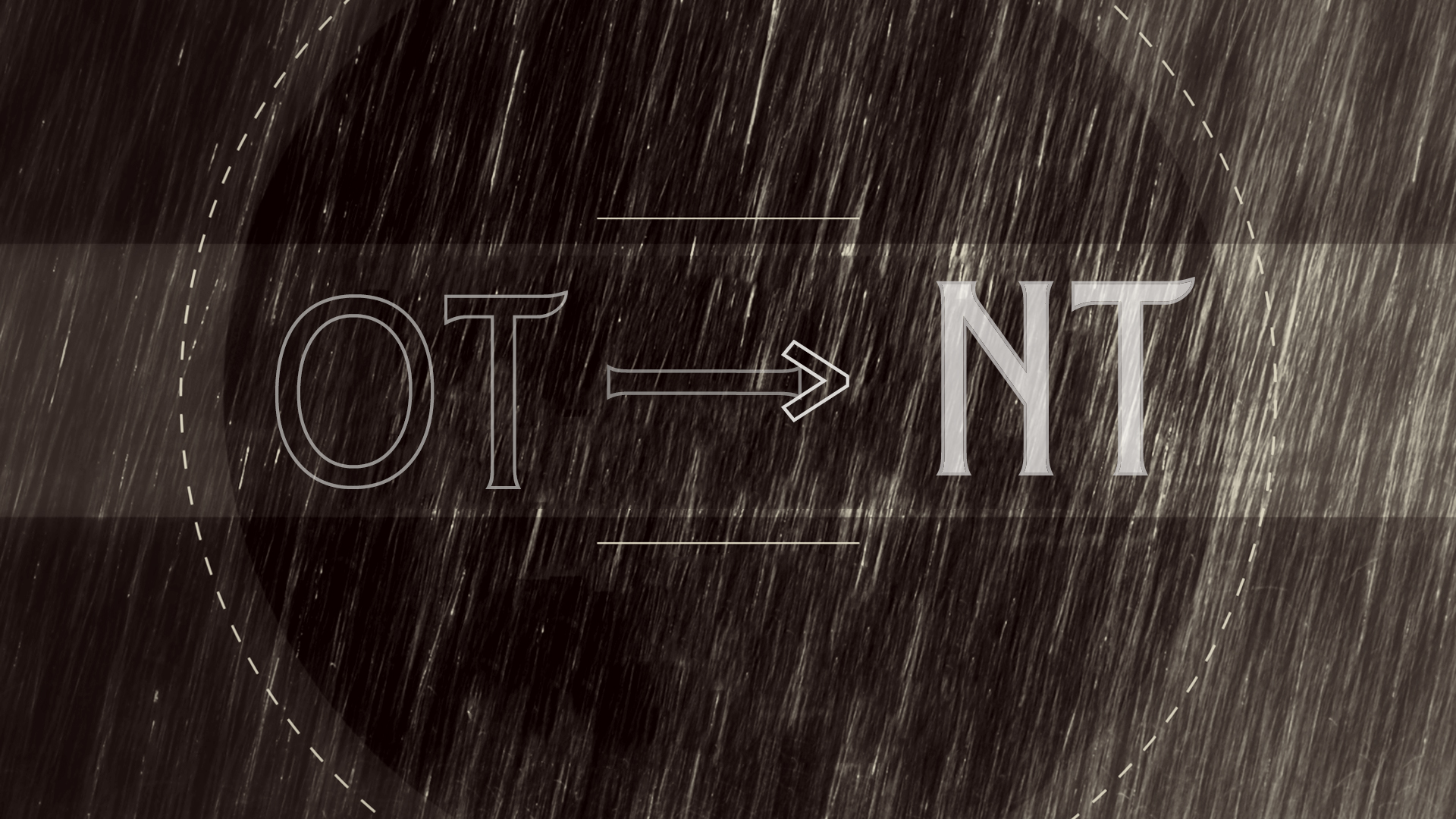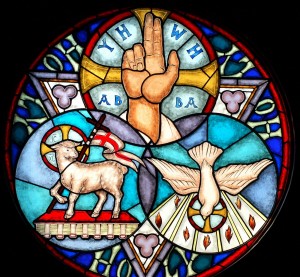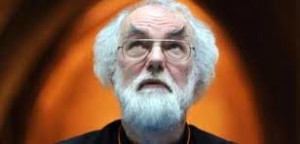Cale shows how the hallucination theory does not explain the Resurrection of Jesus.
Posts
This is my latest piece for Catholic Answers. Have a Blessed Triduum and a very Happy and Holy Easter!
During this sacred Triduum and during Easter, as we commemorate Christ’s passion, death, and resurrection, it is not unusual for us to come across challenges—online, through the media, in our conversations with unbelievers—to the historical truth of these salvific events.
One criticism commonly leveled at the biblical record has to do with Jesus’ prophecies concerning his brutal death.
Skeptics allege that these are a case of prophecy ex eventu—prophecy after the fact. According to some critics, Jesus never really predicted such things. Rather, the early Church, in composing the Gospels, simply put these words in the mouth of our Lord afterward, making his “predictions” match what already happened.
There are, however, a number of compelling reasons to believe that Jesus did truly predict that he would be killed. But before we discuss these, a couple of housekeeping items are in order:
First, due to space constraints, we will only deal with Jesus’ prophecies concerning his death; though a treatment of his predictions concerning his resurrection is of equal value, it will have to wait for another day.
Also, we’ll leave aside the somewhat obvious fact that, as God incarnate, Jesus would have known the future. Those of us who already believe in Christ’s divinity won’t need much convincing on that front, so we’ll focus here on arguments that a skeptic might find plausible.
For the same reason, although Christians believe the Bible to be the infallible and inerrant word of God, we will look at the texts in question as a skeptic might assess any religious text purporting to be of a historical nature.
In Mark’s Gospel, Jesus makes three predictions (which are paralleled in Matthew and Luke) concerning his fate, the first of which is found in Mark 8:31-35:
And he began to teach them that the Son of man must suffer many things, and be rejected by the elders and the chief priests and the scribes, and be killed, and after three days rise again. And he said this plainly. And Peter took him, and began to rebuke him. But turning and seeing his disciples, he rebuked Peter, and said, “Get behind me, Satan! For you are not on the side of God, but of men.” And he called to him the multitude with his disciples, and said to them, “If any man would come after me, let him deny himself and take up his cross and follow me. For whoever would save his life will lose it; and whoever loses his life for my sake and the gospel’s will save it” (RSV2CE; the other two instances are found in Mark 9:31 and 10:33-34).
When historical-Jesus scholars examine the Gospels, one of the criteria they use for determining authenticity is called the “criterion of embarrassment.” If something in the text is a potential source of embarrassment for Jesus or for the early Church, there is a greater probability that it is an authentic reminiscence.
There are a number of potential sources of embarrassment in this passage: Peter, the leader of the early Church, is seen to be rebuking his Master. Jesus, in turn, has to rebuke Peter! This could potentially undermine Peter’s authority in the Church. If, as some scholars believe, Peter is the main source of historical material in Mark’s Gospel, this also speaks to the great humility of Peter, who would have related this account at great potential embarrassment to himself.
There is another potentially embarrassing thing to consider. Not only does Jesus predict his own death, but he expects his own disciples to “follow” him in carrying the cross. And yet, as scholar Craig Evans points out, Jesus was unable to do what he asked his own followers to do. In Mark, as in all three synoptic Gospels, someone else (Simon of Cyrene) carried Jesus’ cross (Mark 15:21). It is thus highly unlikely that Mark would have “invented” either the saying or what Simon did—especially considering that Simon’s sons, Alexander and Rufus, were likely members of the church in Rome, to which Mark probably addressed his Gospel (Mark 15:21; Rom 16:13 specifically mentions Rufus), and could corroborate the account.
One obvious—and ominous—portent of Jesus’ own fate was what happened to his relative and forerunner, John the Baptist. Jesus affirmed John’s message of repentance in preparation for the coming kingdom of God, a message that ultimately led to John’s demise. Jesus clearly would have known that by affirming John as a prophet and by continuing in the same vein of teaching as John, he ran the risk of suffering John’s fate. Jesus even sends a message to John’s executioner, Herod Antipas, referencing Jesus’ own impending death:
At that very hour some Pharisees came, and said to him, “Get away from here, for Herod wants to kill you” [showing that not all Pharisees opposed Jesus!]. And he said to them, “Go and tell that fox, ‘Behold, I cast out demons and perform cures today and tomorrow, and the third day I finish my course. Nevertheless I must go on my way today and tomorrow and the day following; for it cannot be that a prophet should perish away from Jerusalem’” (Luke 13:31-33).
After arriving in Jerusalem and teaching about John in the temple precincts, Jesus tells the parable of the wicked vineyard tenants (Mark 12:1-12), in which Jesus clearly identifies himself with the “beloved son” who is killed. This is yet another piece of the puzzle. But perhaps the clearest piece of evidence that Jesus expected to be killed was something he said shortly before he was arrested.
In the garden of Gethsemane, Jesus “began to be greatly distressed and troubled.” With his soul “sorrowful,” he prays that his hour might pass him by (Mark 14:33-36). That Jesus was “greatly distressed” and prayed to avoid his imminent suffering falls, once again, under the criterion of embarrassment. It is highly unlikely that a Christian would invent such a saying.
Much more could be said, but given these evidences, we already have very good warrant to believe that, in all likelihood, Jesus truly prophesied his passion. He knew, and he wanted his disciples to know, that his earthly mission was to culminate in the events of the Triduum that we will observe this week.

It’s so very important for Christians to study the Old Testament. When learning the Scriptures, many people want to “skip to the good part” in their view. They want to go right to the end of the book, the New Testament, the part of the Bible that speaks directly of Jesus.
This view is shortsighted for several reasons.
First, the ultimate subject of all of Scripture is Jesus Christ. He is the living Word of God, after all. As St. Augustine so famously said, “The New Testament is in the Old, concealed; the Old Testament is in the New, revealed.”
Secondly, just because it’s called the “Old” Testament, doesn’t mean it’s old news.. Our society doesn’t like anything that’s labeled “old” – and sadly, this can refer to people as well as products. Marketers are always seeking to promote what is “new” and allegedly improved. This is why many now refer to the Old Testament as the “Hebrew Scriptures” instead. They may speak of events that happened long ago, but God still speaks to us in a fresh way, as relevant still to our time as this morning’s newspaper. Much more so, in fact, because it is a message from the Almighty.
Third, in order to understand the New Testament properly, we must have at least a basic understanding of the Old Testament. So many times in the New Testament, we read that Jesus came to “fulfill” Scripture. What is meant by that, obviously, are the Scriptures of the Old Covenant, more commonly known as the Old Testament (the word “covenant” means the same thing as “testament”; testamentum is the Latin translation of “covenant”). Just as in mathematics, one must understand basic calculus before moving on to trigonometry, one must understand the Old Testament before one can fully understand the New.
 Following talks that I’ve given lately, I’ve fielded a lot of questions about the persecution of Iraqi Christians. All of us have been horrified by what we’ve heard; very often we’re at a loss about what to do. Josh Canning over at Canadian Catholic has penned a nice post offering three practical action steps:
Following talks that I’ve given lately, I’ve fielded a lot of questions about the persecution of Iraqi Christians. All of us have been horrified by what we’ve heard; very often we’re at a loss about what to do. Josh Canning over at Canadian Catholic has penned a nice post offering three practical action steps:
1. Write your MP (Member of Parliament in Canada; American readers can contact their elected representatives at State and Federal levels):
- Sometimes we plan to do this and procrastinate. Please do it now. It does influence policy, and I am posting a letter below that you can cut and paste if you like.
2. Give
- CNEWA launched an emergency appeal to help fleeing families in Iraq. How much should you give? $100 is a good bold number to start with. Maybe you can’t give that much, maybe you can give more. Just make it sting a little. It helps! (Canadians give here or here; Americans can give here.
3. Pray
- Let us, as a people of God, beg him daily for solutions to this crisis. Pray personally. Get together and pray in groups. Have Masses said for this intention. And fast from something.
When part of the body hurts the whole body feels it. Let’s ache with and for our suffering family, and be generous.
Sample Letter to an MP
Hon. MP _______,
As a member of your riding, I am writing to ask you to advocate for a greater government response to the tragic events happening right now in Iraq. There is a genocide taking place against Iraq’s Christian community. Along with the archbishop of Toronto, Thomas Cardinal Collins, I ask that all bureaucratic barriers be removed to accept Iraqi refugees who are being displaced, hunted down and murdered by the Islamic State (formerly ISIS).
The number of victims is vast and rapidly growing. Women, children and the elderly are dying of exposure. Please do what you can to ensure our government will do its part to urgently provide the humanitarian support needed.
Thank you,
(Your name)
PLEASE SHARE THIS POST
Josh’s full post is well worth reading – and sharing.
 Q. This Sunday is the Solemnity of the Most Holy Trinity, and we Catholics are used to hearing about God the Father, God the Son, and God the Holy Spirit. But some Australian priests got a bit “creative” with the liturgy a few years ago, and began opening the Mass in a different way. Instead of saying, “In the name of the Father, and of the Son, and of the Holy Spirit”, they said this: “In the name of the Creator, the Redeemer, and the Sanctifier”. They were severely reprimanded by their bishop. Why was this such a big deal to the Church?
Q. This Sunday is the Solemnity of the Most Holy Trinity, and we Catholics are used to hearing about God the Father, God the Son, and God the Holy Spirit. But some Australian priests got a bit “creative” with the liturgy a few years ago, and began opening the Mass in a different way. Instead of saying, “In the name of the Father, and of the Son, and of the Holy Spirit”, they said this: “In the name of the Creator, the Redeemer, and the Sanctifier”. They were severely reprimanded by their bishop. Why was this such a big deal to the Church?
A. What these priests did was wrong on many levels. The biggest problem was that creating, redeeming and sanctifying are things that God does, but they are not who he is. Yes, it is true that God created the cosmos, and that Jesus redeemed us, and that the Holy Spirit sanctifies us (makes us holy, provided we cooperate with God’s grace). But creating, redeeming, and sanctifying are God’s activities, not his identity. He is Father, Son, and Holy Spirit (cf. Matthew 28:19).
Q. Why did God not reveal himself as a Trinity of Persons until the age of the New Covenant, in which we are now living?
A. God dealt with humanity as a wise parent deals with a child. This has often been called the “divine pedagogy”. A small child cannot understand trigonometry or quantum physics. One must start with simple concepts, like “2 + 2 = 4”, and build from there. More truth is added when the student is ready to handle it. In the same fashion, God gradually revealed truth about himself to human beings, culminating in the revelation of the Most Holy Trinity.
I actually think that the Trinity is all over the Old Testament as well – God creating the universe by his powerful “Word” in Genesis – the Word that later became flesh, Jesus Christ (John 1:14). God’s Spirit hovered over the waters of creation – the Holy Spirit (Genesis 1:2). God said, “Let us make man in our image” (Genesis 1:26). All of this is less explicit than we might like it to be, but the doctrine is there. I believe that one reason God did not more clearly spell out the doctrine of the Trinity until later in salvation history was the problem of polytheism in the ancient Near East.
In the Old Testament period, God chose to reveal himself to the world gradually through the agency of his people, Israel. The ultimate plan was for all the nations (or “Gentiles”, ethnic groups) outside of Israel to join God’s family. This was promised to Abraham, the father of the Jewish people, when God promised him that all the nations of the earth would be blessed through his “seed” (Genesis 22:18). This finally happened in the age of the universal (the word “Catholic” means “universal”) Church of Jesus Christ, the son (descendant, or “seed”) of Abraham, according to the flesh (Matthew 1:1).
But, in the time of ancient Israel, God’s people lived among many other peoples who were polytheists (they believed in many “gods”). At that time, it was more important for Israel to reveal to the world that there is only one true God. The revelation that there are three persons in the one God would have to wait. If that truth had been fully proclaimed at that point, it may have confused non-Jews, who may have viewed the Trinity as three different “gods”, rather than three Divine Persons sharing one Divine nature.
 Call it an Anglican communion confusion. Charles Lewis, writing in today’s National Post cover story, tells us that “Canadian Anglicans will hold discussions this spring about whether baptism is necessary for taking part in communion – questioning a requirement of Christianity that has existed for 2,000 years.”
Call it an Anglican communion confusion. Charles Lewis, writing in today’s National Post cover story, tells us that “Canadian Anglicans will hold discussions this spring about whether baptism is necessary for taking part in communion – questioning a requirement of Christianity that has existed for 2,000 years.”
The reason? Numbers are down! The Anglican communion in Canada has been bleeding members for years. According to the Post article, the organization is down to only 500,000 members, whereas it had 1.3 million only decades ago. The hope is that another attempted Anglican change of the rules of the game will attract more fans.
I’m reminded of the wise words of Peter Kreeft, who once noted that the Catholic Church is always being accused of trying to impose some sort of a draconian authority over its members, but the reality is that other Christian communities actually claim far, far more authority for themselves than does the Catholic Church.
How so? Kreeft says that these communities are constantly changing the teachings of Christ to suit their own needs and whims, but the Catholic Church does not – and cannot – do so. She simply doesn’t have the authority. She is not free to alter the teachings of her Lord. Kreeft says that “authority”, after all, means “author’s rights”. We are not the authors of Christ’s teaching, and we are not free to edit it – we’re only the mail carriers. Our job is simply to pass on the teaching of Christ intact to the next generation, unpopular though it may be.
But, even if Anglicans do open up their communion table to all, our Lord won’t be offended in the least. After all, Anglicans haven’t had valid Holy Orders for centuries. They may think they have a valid eucharist, but without validly ordained priests and bishops, it can never be the Eucharist – the true Body and Blood of Christ. Deep down, many Anglicans realize this, just as Cardinal John Henry Newman did before coming home to the Catholic Church. He noted that the leftover, and allegedly consecrated, communion elements from a service were summarily dumped in the trash. He realized that this could not possibly be the Eucharist the early Christians spoke of – no matter who gets to partake of it. And no amount of misguided marketing could ever change that fact.


